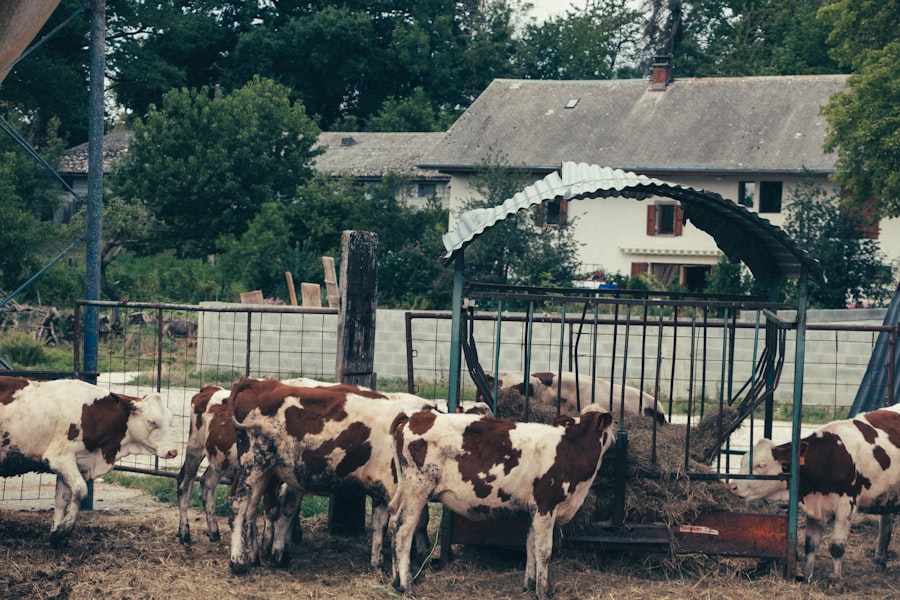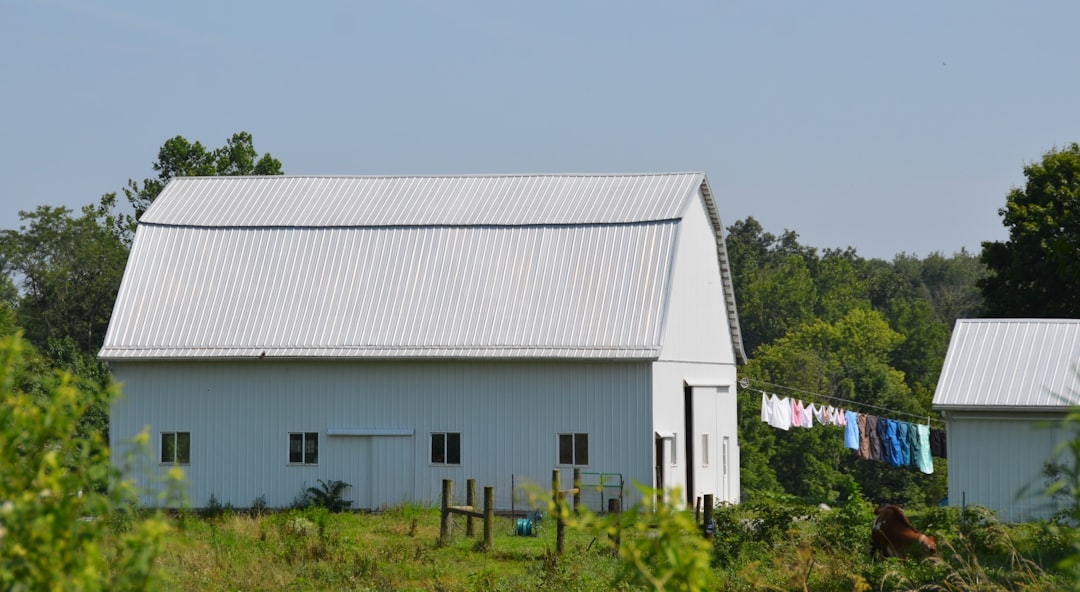The landscape of agriculture has undergone significant transformation over the past few decades, leading to a marked decline in small-scale farming. Once the backbone of rural economies, small farms have faced numerous challenges that have made it increasingly difficult for them to survive. Factors such as urbanization, industrial agriculture, and changing consumer preferences have contributed to this decline.
As larger agribusinesses dominate the market, small-scale farmers find themselves squeezed out, unable to compete with the economies of scale that larger operations can achieve. This shift not only affects the farmers themselves but also has broader implications for food diversity and local economies. Moreover, the decline of small-scale farming has led to a loss of traditional agricultural knowledge and practices that have been passed down through generations.
These small farms often prioritize biodiversity and sustainable practices, which are increasingly recognized as vital for environmental health. As these farms disappear, so too does the rich tapestry of local food systems that they support. The decline of small-scale farming is not merely an economic issue; it is a cultural and ecological one that threatens the very fabric of rural communities.
Key Takeaways
- Small-scale farming is declining due to various factors such as urbanization, lack of access to resources, and competition from large-scale industrial farming.
- Tenant farming is on the rise as more people are turning to renting land and equipment to start their own farming operations.
- Tenant farmers face challenges such as high rental costs, limited access to capital, and uncertainty about land tenure, which can hinder their ability to succeed.
- Technology plays a crucial role in reviving agriculture by improving efficiency, increasing yields, and providing access to valuable data for decision-making.
- Sustainable farming practices are important for preserving the environment, maintaining soil health, and ensuring the long-term viability of agriculture.
The Rise of Tenant Farming
In response to the challenges faced by small-scale farmers, tenant farming has emerged as a viable alternative for many individuals seeking to engage in agriculture without the burden of land ownership. Tenant farming allows individuals to cultivate land owned by others, providing an opportunity for those who may lack the financial resources to purchase land outright. This model has gained traction in various regions, particularly where land prices are prohibitively high for aspiring farmers.
By leasing land, tenant farmers can focus on production without the significant upfront investment required for land acquisition. The rise of tenant farming has also been fueled by changing demographics and a growing interest in agriculture among younger generations. Many young people are drawn to farming as a means of connecting with their food sources and contributing to sustainable practices.
Tenant farming offers a pathway for these individuals to enter the agricultural sector while minimizing financial risk. This shift not only revitalizes rural areas but also fosters a new generation of farmers who are committed to innovative and sustainable practices.
The Challenges Faced by Tenant Farmers

Despite its potential benefits, tenant farming is not without its challenges. Tenant farmers often face uncertainty regarding their leases, which can be short-term and subject to renewal based on the landowner’s preferences. This lack of stability can hinder long-term planning and investment in infrastructure or improvements that would enhance productivity.
Additionally, tenant farmers may struggle with limited access to resources such as credit, insurance, and technical assistance, which can further complicate their ability to succeed. Furthermore, tenant farmers may encounter difficulties in establishing a market presence. Without the security of land ownership, they may find it challenging to build relationships with consumers or retailers who prefer to work with established producers.
This can lead to a cycle of instability where tenant farmers are unable to invest in their operations due to uncertainty about their future on the land. Addressing these challenges requires a concerted effort from various stakeholders, including policymakers, agricultural organizations, and community members.
The Role of Technology in Reviving Agriculture
| Technology | Impact |
|---|---|
| Smart Farming | Increased efficiency in resource usage |
| Precision Agriculture | Improved crop yield and reduced environmental impact |
| IoT in Agriculture | Real-time monitoring and data-driven decision making |
| Drones and UAVs | Enhanced crop surveillance and pest control |
| Biotechnology | Development of disease-resistant and high-yielding crops |
Technology has emerged as a powerful tool in the quest to revive agriculture, particularly for tenant farmers who seek innovative solutions to enhance productivity and sustainability. Advances in agricultural technology, such as precision farming tools, drones, and data analytics, enable farmers to optimize their operations and make informed decisions based on real-time data. These technologies can help tenant farmers maximize yields while minimizing resource use, ultimately contributing to more sustainable practices.
Moreover, technology facilitates access to information and markets that were previously out of reach for many small-scale producers. Online platforms allow tenant farmers to connect directly with consumers, bypassing traditional distribution channels that often favor larger agribusinesses. This direct-to-consumer model not only enhances profitability for tenant farmers but also fosters a sense of community and connection between producers and consumers.
As technology continues to evolve, it holds the potential to reshape the agricultural landscape in ways that empower tenant farmers and promote sustainable practices.
The Importance of Sustainable Farming Practices
Sustainable farming practices are essential for ensuring the long-term viability of agriculture and protecting the environment. As tenant farmers navigate the complexities of their operations, adopting sustainable methods can provide numerous benefits. These practices often focus on soil health, water conservation, and biodiversity, all of which contribute to resilient ecosystems capable of withstanding climate change and other environmental pressures.
By prioritizing sustainability, tenant farmers can differentiate themselves in the marketplace and appeal to a growing consumer base that values environmentally friendly products. Sustainable practices not only enhance the quality of food produced but also contribute to the overall health of local communities and ecosystems. As awareness of environmental issues continues to rise, the importance of sustainable farming practices will only become more pronounced in shaping the future of agriculture.
The Economic Impact of Tenant Farming

Tenant farming plays a significant role in local economies, particularly in rural areas where agricultural production is a primary source of income. By providing opportunities for individuals to engage in farming without the burden of land ownership, tenant farming can stimulate economic activity and create jobs within communities. This model allows for greater flexibility in land use and can lead to increased agricultural diversity, which is essential for building resilient local economies.
Furthermore, tenant farmers often contribute to local food systems by producing fresh produce and other goods that are sold directly to consumers or local markets.
The economic impact of tenant farming extends beyond individual farms; it can revitalize entire communities by creating networks of support among producers, consumers, and local businesses.
The Role of Government Policies in Supporting Tenant Farmers
Government policies play a crucial role in shaping the landscape for tenant farmers and ensuring their success. Supportive policies can provide access to resources such as grants, loans, and technical assistance that are essential for tenant farmers looking to establish or expand their operations. Additionally, policies that promote land access and security can help mitigate some of the challenges faced by tenant farmers regarding lease agreements and land tenure.
Moreover, government initiatives aimed at promoting sustainable agriculture can further bolster tenant farming by encouraging environmentally friendly practices and providing incentives for those who adopt them. By creating an enabling environment for tenant farmers through supportive policies, governments can help foster a more equitable agricultural system that benefits both producers and consumers alike.
The Rise of Community Supported Agriculture
Community Supported Agriculture (CSA) has gained popularity as a model that connects consumers directly with local farmers, including tenant farmers. In this arrangement, consumers purchase shares in a farm’s harvest upfront, providing farmers with much-needed capital at the beginning of the growing season. This model not only helps tenant farmers secure funding but also fosters a sense of community as consumers become invested in the success of their local farms.
CSAs offer numerous benefits beyond financial support; they also promote transparency in food production and encourage consumers to engage with their food sources more meaningfully.
This model strengthens local food systems and supports tenant farmers by creating a loyal customer base that values their contributions.
The Benefits of Direct-to-Consumer Farming Models
Direct-to-consumer farming models have emerged as an effective way for tenant farmers to enhance their profitability while building relationships with their communities. By selling products directly at farmers’ markets, through online platforms, or via subscription services like CSAs, tenant farmers can capture a larger share of the retail price compared to traditional distribution channels. This approach not only increases income potential but also allows farmers to establish a brand identity based on quality and sustainability.
Additionally, direct-to-consumer models empower tenants by giving them greater control over their marketing strategies and customer relationships. This autonomy enables them to tailor their offerings based on consumer preferences while fostering loyalty among customers who appreciate supporting local agriculture. As more consumers seek out fresh, locally sourced products, direct-to-consumer models present an opportunity for tenant farmers to thrive in an increasingly competitive market.
The Potential for Agri-Tourism in Reviving Agriculture
Agri-tourism has emerged as a promising avenue for revitalizing agriculture and supporting tenant farmers by attracting visitors interested in experiencing farm life firsthand. By offering tours, workshops, or farm-to-table dining experiences, tenant farmers can diversify their income streams while educating the public about sustainable practices and local food systems. This model not only generates additional revenue but also fosters connections between urban consumers and rural producers.
The potential for agri-tourism extends beyond financial benefits; it also serves as a platform for raising awareness about the challenges faced by farmers today. Visitors who engage with tenant farms gain insight into the hard work involved in food production and develop a deeper appreciation for locally sourced products. As agri-tourism continues to grow in popularity, it presents an opportunity for tenant farmers to showcase their contributions while fostering community engagement around agriculture.
The Future of Tenant Farming and Sustainable Agriculture
Looking ahead, the future of tenant farming appears promising as more individuals recognize its potential within sustainable agriculture frameworks. With increasing awareness about environmental issues and food security concerns, there is a growing demand for locally produced food that prioritizes sustainability. Tenant farming aligns well with these trends by offering flexible solutions that allow aspiring farmers to engage in responsible agricultural practices without the burden of land ownership.
As technology continues to advance and government policies evolve to support sustainable practices, tenant farmers will likely find new opportunities for growth and innovation within their operations. By embracing community engagement through models like CSAs and agri-tourism while leveraging technology for efficiency gains, tenant farmers can play a vital role in shaping resilient food systems that benefit both producers and consumers alike. The future holds great potential for tenant farming as it adapts to meet the needs of an ever-changing agricultural landscape while championing sustainability at its core.
The emergence of the new tenant farmer society has sparked significant interest in the agricultural community, as it represents a shift towards more sustainable and community-focused farming practices. This movement is gaining traction as more individuals seek to reconnect with the land and promote local food systems. An insightful article that delves into the economic implications and potential benefits of this trend can be found on the How Wealth Grows website. For a deeper understanding of how these changes are influencing wealth distribution and community development, you can read more in this related article.
WATCH THIS! 🫣Why Wall Street Is Buying Up America’s Farmland (And Why It Should Terrify You)
FAQs
What is the new tenant farmer society?
The new tenant farmer society refers to a modern movement of individuals who are involved in agricultural activities as tenants on rented land. This movement is characterized by a focus on sustainable and regenerative farming practices, community collaboration, and the use of technology to improve agricultural productivity.
What are the key principles of the new tenant farmer society?
The key principles of the new tenant farmer society include sustainable farming practices, land stewardship, community engagement, and the use of technology to enhance agricultural productivity. Members of this society often prioritize environmental conservation and social responsibility in their farming practices.
How does the new tenant farmer society differ from traditional tenant farming?
The new tenant farmer society differs from traditional tenant farming in its emphasis on sustainable and regenerative farming practices, community collaboration, and the use of technology. While traditional tenant farming may have focused solely on agricultural production, the new tenant farmer society places a greater emphasis on environmental and social impact.
What are some examples of initiatives within the new tenant farmer society?
Initiatives within the new tenant farmer society may include community-supported agriculture (CSA) programs, regenerative farming practices, organic farming cooperatives, and the use of precision agriculture technologies. These initiatives often prioritize environmental sustainability, community engagement, and the well-being of farm workers.
How is the new tenant farmer society impacting the agricultural industry?
The new tenant farmer society is influencing the agricultural industry by promoting sustainable and regenerative farming practices, fostering community collaboration, and leveraging technology to improve agricultural productivity. This movement is contributing to a shift towards more environmentally and socially responsible farming practices within the industry.
